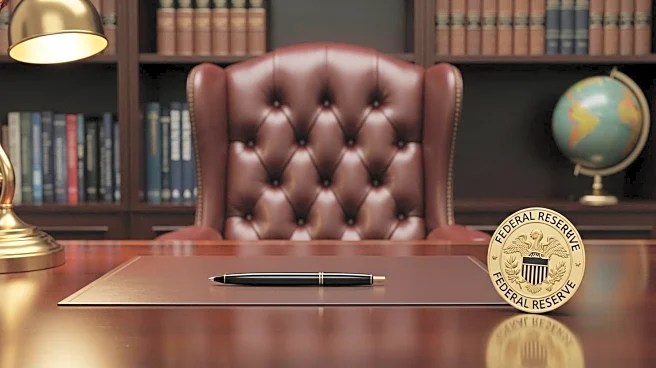What is the story about?
What's Happening?
Federal Reserve Governor Christopher Waller reported that his interview with Treasury Secretary Scott Bessent for the position of U.S. central bank chief went well and was not political. Waller is considered a top contender to succeed Chair Jerome Powell, whose term expires in May. The interview focused on serious economic discussions, according to Waller. He is among five candidates under consideration, including Fed Vice Chair for Supervision Michelle Bowman and White House National Economic Council Chair Kevin Hassett. President Trump has demanded the Fed slash interest rates and has criticized Powell, whom he appointed during his first term.
Why It's Important?
The selection of the next Federal Reserve Chair is crucial for U.S. monetary policy, impacting interest rates and economic stability. Waller's candidacy, along with others, reflects the administration's approach to shaping the Fed's future direction. The Fed's independence is a key issue, especially as President Trump has attempted to influence its decisions. The outcome of this selection process could affect inflation control, employment rates, and overall economic growth, with significant implications for financial markets and the broader economy.
What's Next?
The vetting process for the next Fed Chair continues, with preliminary interviews conducted for 11 candidates, now narrowed down to five. The final decision will be made by President Trump, who has shown a preference for candidates willing to lower interest rates. The selection will likely influence the Fed's policy direction, potentially affecting economic growth and stability. Stakeholders, including financial markets and political leaders, will closely monitor the decision and its implications for U.S. monetary policy.
Beyond the Headlines
The political dynamics surrounding the Fed Chair selection highlight concerns about the Fed's independence. President Trump's intervention in the process raises questions about potential political influence on monetary policy. The broader implications include the balance between economic growth and inflation control, as well as the Fed's role in maintaining financial stability. The decision could also impact international perceptions of U.S. economic policy and its leadership in global financial markets.















